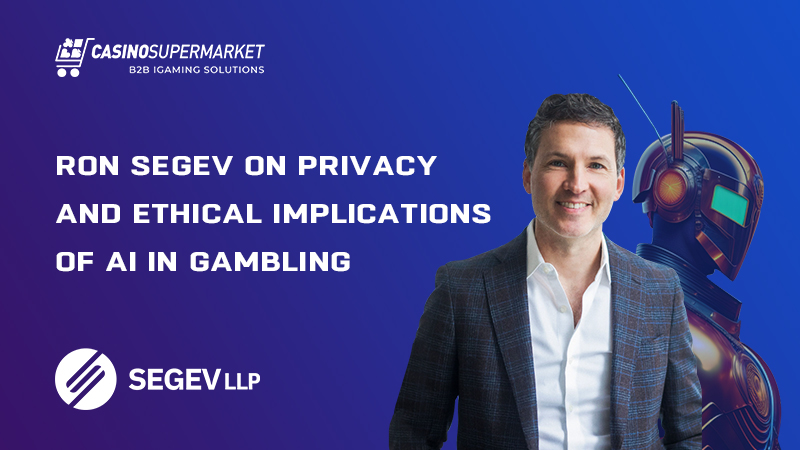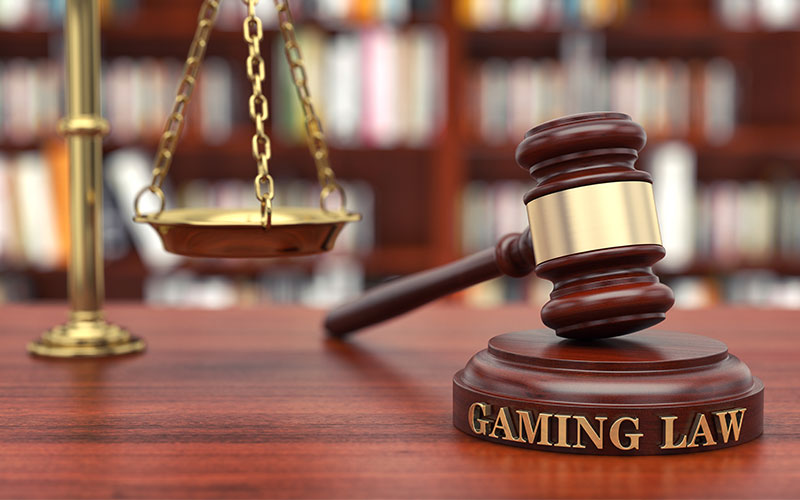
Ron Segev, a prominent iGaming lawyer, speaks on the privacy and ethical concerns of Artificial Intelligence in gaming and betting segments. Despite the significant potential of this modern technology, there is uncertainty surrounding its effective regulation. Let us see the expert considerations in this regard.

Key Applications
Ron Segev explored the role of AI in the gambling industry and mentioned the challenges faced by legal regulators in this context. Many companies integrate modern technology to strengthen business operations, such as instant monitoring of user accounts.
Let us see the most common applications of AI:
- assessing player behaviour;
- delivering customised content;
- enhancing retention;
- optimising revenue.
Another intriguing use of AI involves odds-making by bookmakers. In addition to handling extensive sports statistics, new technologies incorporate computer vision, which provides valuable analytics. AI-driven tools offer real-time data that was previously hard to obtain, such as a team’s position and distance covered. This creates more betting and gaming possibilities, which contribute to a seamless experience.
Being a perfect place for fraudulent activities, online casinos and sportsbooks require constant protection. AI promotes responsible gambling by helping analyse transaction data and detect scams.
Legal Aspects

Modern tech solutions have already been integrated into the casino industry. So operators can estimate the value of existing players and enhance user retention. Engaging a new audience takes time and effort, mainly due to complex legislative norms.
Mr Segev highlighted the lack of comprehensive regulations surrounding AI and mentioned key areas that governments should monitor when drafting new laws. Security, data ownership, and responsible gambling are major concerns which cause problems for the most vulnerable audience. Game integrity must be maintained to ensure fairness and transparency in AI-integrated content.
Here are the latest regulatory initiatives to consider:
- The Gaming Control Act. The document marks a significant shift toward comprehensive regulatory supervision, especially concerning issues related to problem gambling in British Columbia, Canada.
- AI legislation in the EU. The current draft of the future document does not fully cover the gaming sector. The proposal classifies technology based on risk levels, prohibiting the most hazardous forms and regulating the rest of them. The differentiation could conceivably encompass more advanced player profiling algorithms that go beyond the limits.
The government takes fair gaming and betting activities under control. The integrity of content requires additional monitoring with AI algorithms. Operators need to ensure the accuracy of independent testing and verification procedures to minimise the possibility of tech misuse. For example, online poker bots can analyse the strategies of legitimate players to gain an advantage. Unique protection mechanisms need to be incorporated into the framework of game integrity regulation.
Let us see the key legislative challenges in AI:
- privacy breaches;
- intellectual property issues;
- bias and discrimination in player profiling, etc.
Operators should know innovative capabilities to effectively handle the difficulties. This raises issues on the extent of technology disclosure required to enable proper compliance.
Data Implications of Using AI
Gaming companies ensure that their systems align with the relevant privacy laws in the respective jurisdictions. The tech algorithms should demonstrate transparency in information processing. Given that AI relies on data inputs, it is crucial to eliminate opportunities for bypassing security restrictions.
Operators must guarantee the ethical deployment of innovations and implement effective safeguards against problem gambling. They should also remain vigilant regarding possible biases in AI's profiling and handling of different players. Ongoing checking of this concern represents the initial step towards mitigation.
AI is poised to wield substantial power in the future of the iGaming industry. However, this potential does not preclude the emergence of other disruptive technologies in the same segment.
Start an iGaming platform using the latest tech solutions. Contact the managers of Casino Market to order and integrate innovative software.
From our company you can also order:
- payment systems integration;
- licencing aid;
- business plan elaboration, etc.
Have questions or want to order services?
Contact our consultants:
- e-mail: manager@casino-market.com
- feedback form.
Check the information used to contact us carefully. It is necessary for your safety.
Fraudsters can use contacts that look like ours to scam customers. Therefore, we ask you to enter only the addresses that are indicated on our official website.
Be careful! Our team is not responsible for the activities of persons using similar contact details.








